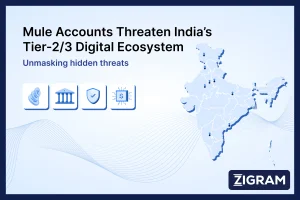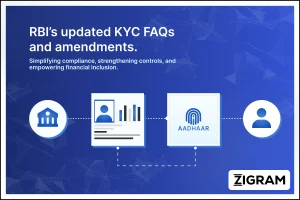In today’s rapidly evolving financial landscape, payment firms are under increasing pressure to comply with stringent Anti-Money Laundering (AML) regulations. These regulations are essential for preventing the flow of illicit funds through the financial system, yet they pose significant challenges due to the sheer volume and speed of transactions, as well as the complex, ever-changing regulatory environment. Traditional AML methods, heavily reliant on manual processes, have proven to be resource-intensive and often insufficient in effectively combating sophisticated money laundering schemes.

“The increased use of digital solutions for AML/CFT based on Artificial Intelligence (AI) and its different subsets (machine learning, natural language processing) can potentially help to better identify risks and respond to, communicate, and monitor suspicious activity. At public sector level, improved live (real-time) monitoring and information exchange with counterparts enable more informed oversight of regulated entities, helping to improve supervision. At private sector level, technology can improve risk assessments, onboarding practices, relationships with competent authorities, auditability, accountability and overall good governance whilst cost saving.” – as discussed in ‘Opportunities And Challenges Of New Technologies For AML/CFT’ by Financial Action Task Force (FATF).
Want FATF updates instantly? Follow us on LinkedIn for more such updates!
The Evolving AML Landscape
Advancements in technology are transforming the AML landscape, offering innovative solutions that streamline and enhance compliance efforts. From artificial intelligence (AI) and machine learning (ML) to blockchain and big data analytics, payment firms are leveraging cutting-edge tools to detect and prevent money laundering activities with unprecedented accuracy and efficiency. These technologies not only automate routine tasks and reduce operational costs but also enable real-time monitoring and analysis, empowering firms to stay ahead of emerging threats and maintain robust AML defenses.
Challenges In AML Compliance For Payment Firms
1. Volume of Transactions
Payment firms process millions of transactions daily, making it difficult to monitor them effectively. The sheer volume can lead to a high number of false positives, overwhelming compliance teams, and potentially allowing some illicit activities to go undetected.
2. Speed of Transactions
Real-time payment systems complete transactions in seconds, leaving little time for compliance checks. Ensuring AML checks do not delay transaction processing is a significant challenge as delays can negatively affect customer experience.
3. Complex Regulatory Environment
AML regulations vary widely across different jurisdictions and are frequently updated. Staying compliant across multiple regions requires substantial resources and expertise.
4. Resource Intensive
Traditional AML processes require significant manual effort, which can be costly and time-consuming. Firms must allocate considerable resources to stay compliant, which can detract from other business operations.
5. Evolving Threats
Money launderers continuously adapt their tactics, making it challenging for firms to keep pace with new schemes. Traditional methods may not be agile enough to detect novel threats, necessitating more dynamic solutions.
Technological Solutions Enhancing AML Compliance
1- Artificial Intelligence (AI) And Machine Learning (ML)
AI and ML are revolutionizing AML processes by enabling payment firms to analyze vast amounts of data quickly and accurately. For example, ZIGRAM’s PreScreening.io utilizes AI to streamline the name screening process by automating real-time monitoring, which reduces false positives and enhances the accuracy of detection. This tool significantly increases efficiency by allowing firms to quickly identify high-risk entities without manually sifting through data.
- Advanced Pattern Recognition: AI and ML can identify complex patterns and correlations in transaction data that might be indicative of any financial fraud. These technologies learn from historical data to improve detection rates over time.
- Adaptive Learning: ML models are continuously updated with new data, enabling them to evolve with emerging money laundering tactics and improving their accuracy and effectiveness in detecting suspicious activities.
- Predictive Analytics: AI can be utilized in other AML tools, like Dragnet Alpha, to forecast potential risks by analyzing behavioral patterns, enabling proactive risk management.
Industry Example: The application of AI and ML in AML is not just theoretical. For instance, large financial institutions like HSBC and JP Morgan have incorporated AI-driven systems to enhance their name screening and transaction monitoring processes. These systems help them manage compliance with complex global regulations more effectively while also cutting down on operational costs associated with manual reviews.
2- Robotic Process Automation (RPA)
RPA plays a crucial role in automating repetitive and manual AML tasks, significantly reducing the workload on compliance teams. ZIGRAM’s SATOC and Doss Engine are prime examples of how RPA can enhance efficiency and accuracy in AML processes. SATOC streamlines the aggregation and monitoring of online content by automatically capturing and indexing data across multiple sources, ensuring that compliance teams have access to the latest information without manual intervention. Similarly, Doss Engine automates the process of capturing and storing web pages in preferred formats, providing easy access to crucial data for compliance checks without the need for manual input.
- Efficiency Gains: RPA optimizes AML processes by automating routine tasks, freeing up compliance teams to focus on more complex, high-value issues.
- Cost Reduction: Automation through tools like SATOC and Doss Engine leads to significant cost savings by decreasing the need for manual labor and reducing the time spent on AML compliance tasks.
- Scalability:
RPA tools can scale according to the size of the operation, handling increasing volumes of data and transactions without proportional increases in staffing.
3- Blockchain Technology
Blockchain offers a transparent and immutable ledger, enhancing the traceability of transactions. ZIGRAM’s Transact Comply, enhances the traceability and transparency of payment transactions. This transaction monitoring platform integrates blockchain's immutable ledger to ensure that every transaction is securely documented, facilitating seamless compliance with AML requirements. By using blockchain, Transact Comply enables real-time monitoring of transactions across multiple jurisdictions, making it easier for payment firms to meet global regulatory standards.
- Decentralized Verification: Blockchain's decentralized nature ensures that transactions are verified across a distributed network, reducing the risk of data tampering or fraud.
- Smart Contracts: Blockchain-based smart contracts can automate compliance checks, ensuring that transactions meet AML regulations without the need for human intervention.
- Enhanced Transparency:
The immutability of blockchain records means that once data is recorded, it cannot be altered, providing a reliable audit trail that is critical for AML compliance.
4- Big Data Analytics
Big Data analytics involves the analysis of large datasets to uncover hidden patterns and insights. ZIGRAM’s Entity Hero application leverages Big Data to detect sophisticated financial fraud schemes and analyze customer behavior, enabling firms to tailor their AML efforts more effectively.
- Behavioral Analysis: Big Data allows for in-depth analysis of customer behavior over time, identifying anomalies that may indicate money laundering activities.
- Risk Segmentation: By segmenting customers based on risk profiles derived from vast data sources, firms can apply more targeted and effective AML strategies.
- Predictive Modeling:
Big Data tools can create predictive models to assess the likelihood of future illicit activities, helping firms proactively address potential risks.
Check out our interesting stack of data assets! Want to know more? Book a Free Demo!
5- Cloud Computing
Cloud computing is revolutionizing AML compliance by offering scalable and flexible resources that enhance the efficiency of compliance operations. ZIGRAM’s PreScreening.io is a cloud-based AML solution that provides payment firms with robust, real-time monitoring capabilities without the need for extensive on-premises infrastructure. By leveraging the cloud, PreScreening.io ensures that compliance teams can access critical data and tools from anywhere, enabling seamless collaboration across global operations while maintaining high standards of data security.
- Scalability: Cloud-based solutions allow firms to scale their AML operations up or down based on their needs, offering flexibility as transaction volumes fluctuate.
- Global Collaboration: Global Collaboration: Cloud platforms enable teams across different regions to access the same data and tools in real-time, improving coordination and ensuring consistency in AML practices.
- Cost Efficiency:
By reducing the reliance on physical infrastructure, cloud solutions lower operational costs and enable firms to allocate resources more strategically.
6- Natural Language Processing (NLP)
NLP enables the analysis of unstructured data from various sources, such as emails, documents, and social media. ZIGRAM’s ZiZi application uses NLP to extract relevant information, identify potential AML risks, and generate comprehensive narrative reports that summarize compliance activities.
- Text Mining: NLP tools can process vast amounts of text data, sifting through it to identify relevant AML-related information, such as mentions of high-risk entities or suspicious activities.
- Sentiment Analysis: NLP can analyze the sentiment behind communications, providing insights into the intentions behind transactions, which can be crucial in identifying potential risks.
- Automated Reporting:
NLP tools, integrated with platforms like DueDiliger, can automatically generate reports from unstructured data, aiding compliance teams in their decision-making processes.
Real-World Applications Of Technology In Enhancing AML Efforts By Payment Firms
PayPal
PayPal has integrated artificial intelligence (AI) and machine learning (ML) into its transaction monitoring systems. These technologies enable PayPal to analyze vast amounts of transaction data in real-time, identifying patterns and anomalies that might indicate fraudulent or suspicious activity. This proactive approach allows for swift action, which is crucial in preventing money laundering. AI, ML, Real-time Analysis benefit in rapid detection and response to suspicious activities, improved accuracy in identifying fraud.
Square
Square leverages Big Data analytics to enhance its Anti-Money Laundering (AML) efforts. By analyzing large volumes of transaction data, Square can identify unusual patterns that may indicate money laundering. This helps ensure compliance with AML regulations and protects the integrity of its payment systems. Big Data Analytics has enhanced ability to detect unusual transaction patterns, improved compliance with AML regulations.
Ripple
Ripple uses blockchain technology to enhance its AML capabilities. Blockchain's inherent transparency and traceability make it an excellent tool for monitoring transactions. Ripple's blockchain network provides a secure and immutable ledger of all transactions, which can be easily audited and monitored for compliance with AML regulations. Blockchain, Transparent and Traceable Transactions helps in enhanced transparency, improved traceability, secure transaction monitoring.
How ZIGRAM Stands Out
ZIGRAM’s suite of data assets, screening solutions, and monitoring tools are designed to address the unique challenges faced by payment firms in AML compliance. By leveraging cutting-edge technologies, ZIGRAM ensures that firms can maintain robust AML defenses while minimizing operational costs and staying compliant with evolving regulations. ZIGRAM’s suite of products, such as PreScreening.io, Transact Comply, and Entity Hero, has been pivotal in helping payment firms navigate the complex AML landscape. By integrating AI, Big Data, and other advanced technologies, ZIGRAM has provided solutions that not only comply with regulations but also enhance operational efficiency.
- Comprehensive Solutions
ZIGRAM offers an end-to-end AML solution that integrates AI, blockchain, Big Data, and other technologies to provide a comprehensive defense against money laundering. - Global Reach
With products designed to meet the needs of firms operating across multiple jurisdictions, ZIGRAM helps payment firms stay compliant with varying AML regulations worldwide. - Customizable Platforms
ZIGRAM’s platforms are highly customizable, allowing firms to tailor their AML efforts to their specific needs and risk profiles.
Conclusion: The Future Of AML Compliance
As technology continues to evolve, the future of AML in payment firms looks promising. Innovations such as quantum computing, advanced biometrics, and enhanced AI capabilities will further streamline AML processes, making compliance more efficient and effective. By leveraging ZIGRAM’s technological advancements, payment firms can ensure compliance with AML regulations, protect their reputation, and reduce operational costs. Staying at the forefront of technological innovation will be key to maintaining robust AML defenses.
ZIGRAM is a one stop solution for all the challenges! Don’t miss out on our suite of data assets, monitoring and screening solutions! Contact us now for a FREE DEMO!
- #AML
- #Technology
- #Compliance
- #PaymentFirms
- #RegTech






